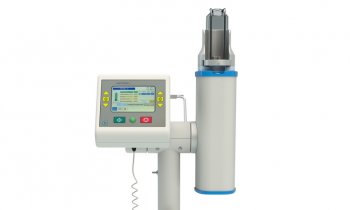Imaging for diabetes and vascular occlusive disease
Metabolic syndrome, diabetes and vascular disease: What do we need to know? During ECR session this important question is addressed by vascular specialist Professor Erich Minar, Assistant Head of the Department of Angiology at the Vienna General Hospital (AKH), President of the Austrian Society of Angiology, and scientific researcher working closely with research centres in the USA.

Metabolic syndrome refers to the clustering of cardiovascular risk factors that include diabetes, obesity, dyslipidaemia and hypertension.
The association between metabolic syndrome and cardiovascular diseases raises important questions about the underlying pathological processes, especially for designing targeted therapeutic interventions. Insulin resistance and visceral obesity have been recognised as the most important pathogenic factors. Metabolic syndrome generally precedes and is often associated with Type 2 diabetes. It can be concluded from recent data in the literature that, by application of current best medical treatment, we can improve the overall prognosis of peripheral artery disease (PAD) patients in a clinically relevant percentage. This best medical treatment includes secondary prophylaxis by platelet inhibitors and optimisation of the risk profile, especially concerning blood pressure and lipids.
Each 1% increase in HbA1c is associated with a 28% increase in risk of incident PAD. Rigorous control of blood glucose prevents the microvascular complications of diabetes, although similar benefits on the macrocirculation have not been ascertained.
Patients with diabetes and PAD should have an aggressive control of blood glucose levels with an HbA1c goal of < 7.0% or as close to 6% as possible. In the new TASC paper this recommendation is graded as C, meaning it is based on evidence obtained from expert committee reports or opinions and/or clinical experiences of respected authorities, while there are no applicable interventional studies of good quality.
We have to differentiate between epidemiological studies – demonstrating an association between duration and degree of hyperglycaemia and an increased risk for incident PAD – and interventional studies. Randomised controlled trials of intensive versus standard glycaemic control in Type 1 and Type 2 diabetes have not shown a significant reduction in cardiovascular outcomes during the randomised portion of the trials.
It may be that glycaemic control plays a greater role before macrovascular disease is well developed and minimal or no role when it is advanced. Furthermore, in type 2 diabetes in which other cardiovascular risk factors are highly prevalent, the additive benefits of intensive glycaemic control might be difficult to demonstrate except in even larger or longer trials.
It is important to explain to the patient that there is no strict border between no diabetes and diabetes. It is more or less a fluent development starting with the metabolic syndrome and ending with manifest diabetes. It is important to start cardiovascular risk reduction already in the early stages – i.e. in individuals with metabolic syndrome – and should include control of obesity, healthy diet and regular physical activity.
Appropriate management of the metabolic syndrome should be able to prevent the progression from impaired glucose tolerance to frank diabetes and thus to prevent the increasing prevalence of Type 2 diabetes and vascular diseases.
02.03.2011











